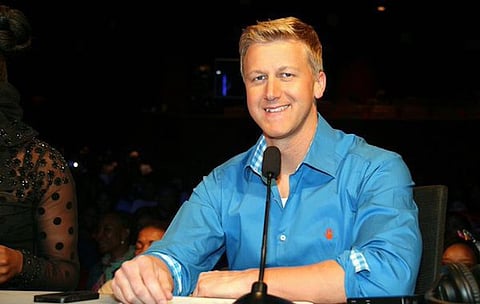Gareth Cliff: I’ll defend your right to speak out, especially if I disagree
Not long ago, even in the world's oldest democracy women authors chose to use male pen names. Best known is Mary Anne Evans (aka George Eliot) but certainly not unique. Evelyn Beatrice Hall, who died as recently as 1956, became famous as the writer Stephen G Tallentyre. It is to Hall that we owe the immortal quote: "I disapprove of what you say, but I will defend to your death your right to say it." Written in her biography of Voltaire, it encapsulates much of what liberal thinkers believe and has been so widely used is often attributed to the great French philosopher himself. Brilliant young broadcaster and disruptive media entrepreneur Gareth Cliff is cut from Hall's cloth. In an address last night to the Free Market Foundation, he presented a compelling case against censorship. Here is an edited version of Cliff's superb contribution. – Alec Hogg
By Gareth Cliff*
It's not an unreasonable assumption to make that countries which have more freedom of speech are the ones that it's better to live in. I'd go even further and say those are also the countries that succeed more often – politically, socially and economically.
Free thought, and the free expression of that thought, lead to the best ideas being cultivated and strengthened and the worst ideas being challenged and replaced. In an environment of censorship and authoritarianism, good ideas aren't encouraged to come out and bad ideas sometimes receive unwarranted protection.
The Internet has allowed more people to express themselves than ever before, and to ever-greater audiences. We may extoll the virtues of these marvellous developments, but we have very good reason to occasionally pay attention to the pitfalls. The bigger your audience and the more free your expression, the greater the chances of you offending, upsetting or hurting someone. Once upon a time you'd have to be a priest, herald, king or author to reach enough people to find one to upset, but everyone with a Facebook account can now enrage someone on a smartphone.
South Africa is at a critical moment in our evolution as a modern state, and the most fundamental choice of all is this one: Do we punish thoughts and words or do we encourage them? It seems like an easy choice until you realise that this not only applies to what you think and say, but also to what bigots might think and say. We can't have two sets of rules. Either you're for free expression, or you're for censorship and thought crime. More to the point, the choice you have is between free speech and violence.
Considering our divided and fractious past, South Africans might be tempted to choose to protect people's feelings, but beware…You're making a rod for your own back. Just because you punish people for something they say or write, doesn't mean that you'll stop them from thinking it. Furthermore, you rob yourself of the right to hear it. So in the case for censorship and the punishment of words, everyone loses.
Politicians and opportunists will use whatever they can to distract us – they'll get us angry and promise to make the person who upset us stop; and they'll wait till we're sad at a funeral and speak about how they pretend to feel our loss. In an election year, they might even pay a few people on social media to manufacture outrage just so we'll be distracted and forget about a president who faces 783 counts of fraud, corruption and racketeering…And usually we'll be dumb enough, and emotional enough, to fall for it.
If you do choose to classify thought and speech as good or bad, someone will have to take up the role of censor. I attended a lecture here, just two weeks ago with Judge Rex Van Schalkwyk, who, more eloquent and erudite on matters of law put it to us that it's a difficult, if not impossible business to choose who among us should decide what is and isn't hateful, and what is and isn't criminal?
I can't think of anyone I'd voluntarily subject my thoughts to for censorship, and I doubt you know of such a person either. Before you claim the legislators or courts as authority, let me remind you that both have been used as instruments by fascist and communist dictatorships alike in the exercise of their power over the people – and don't think there aren't bigots and racists in parliament or on the bench.
The choice is this: South Africans can keep letting events (manufactured or real) divide us; or we can start paying attention to the things that will move us forward, together. If we elect division, anger and outrage rather than adult, rational cooperation – we're doomed.
If we choose the opposite – if we ignore the hate, noise and attention-seeking on social media, and we stand against the forces that coerce us to burn schools, separate along tribal lines or reactively shut down free speech just to spare our feelings – we have a bright future. We don't need to give the Afro-pessimists any victories, and we don't need the Penny Sparrows saying "I told you so" if we become another failed state. We should succeed and you should never shut up.
Don't ever be afraid to say what you think and don't ever be afraid of what other people might say. There's a marketplace of ideas, and you'll need to see the produce before you buy any of it.
- Gareth Cliff is a broadcaster, founder of CliffCentral and a long-time proponent of the benefits of freedom of speech. He delivered this address at an event organised by the Free Market Foundation.

